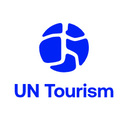Good Tourism Practices to Advance Sustainable Development in the Americas
Madrid, Spain – Concrete examples of how to advance sustainable development through tourism take centre stage in the first joint publication between the World Tourism Organization (UNWTO) and the Organization of American States (OAS). 'Tourism and the Sustainable Development Goals: Good Practices in the Americas' provides 14 case studies from across the region on why tourism ranks high among the economic sectors better positioned to enable the Agenda 2030 for Sustainable Development and its 17 Sustainable Development Goals.
Ranging from tourism projects to strengthen the peace process in Colombia to initiatives in the heart of the Peruvian Amazon, addressing climate change in Mexico or providing insight into management and sustainability systems in Honduras or Panama. A total of 14 case studies portray the contribution of tourism to advance the Sustainable Development Goals in the Americas.
'Tourism and the Sustainable Development Goals: Good Practices in the Americas' recommends to pay critical attention to tourism management as well as to strengthening partnerships between national and international public and private stakeholders, as well as local communities. The report also addresses the emergence of a more responsible traveler and how destinations in the region should integrate resource efficiency and multi-stakeholder involvement in their policies, actions and initiatives.
"With more than 200 million international tourists who traveled to the Americas in 2017, tourism can and must play a significant role in delivering solutions for sustainable development in the region", said UNWTO Secretary-General, Zurab Pololikashvili. "I am grateful for the partnership with the Organization of American States and am confident that together we will support tourism's role in the sustainable development agenda of the region up to and beyond 2030", he added.
According to the Executive Secretary for Integral Development of the OAS, Kim Osborne, this joint effort "provides greater awareness on how tourism can help address poverty alleviation, protect biodiversity and cultural heritage, and support community development in the Americas".
Authorities at all levels in the Americas have identified tourism as a priority sector to promote economic development and diversification and countries across the region are adopting new legislation and policies in this direction. Against this backdrop, 'Tourism and the Sustainable Development Goals: Good Practices in the Americas' provides insight into how a common approach - including policy makers, private sector, tourists and the development community - can catalyze sustainable development through tourism.
The report was presented during the 2018 Inter-American Congress of Ministers and High-level Authorities of Tourism, under the theme 'Connecting the Americas through sustainable tourism'.
About UN Tourism
The World Tourism Organization (UN Tourism) is the United Nations agency responsible for the promotion of responsible, sustainable and universally accessible tourism.
As the leading international organization in the field of tourism, UN Tourism promotes tourism as a driver of economic growth, inclusive development and environmental sustainability and offers leadership and support to the sector in advancing knowledge and tourism policies worldwide.
Our Priorities
Mainstreaming tourism in the global agenda: Advocating the value of tourism as a driver of socio-economic growth and development, its inclusion as a priority in national and international policies and the need to create a level playing field for the sector to develop and prosper.
Promoting sustainable tourism development: Supporting sustainable tourism policies and practices: policies which make optimal use of environmental resources, respect the socio-cultural authenticity of host communities and provide socio-economic benefits for all.
Fostering knowledge, education and capacity building: Supporting countries to assess and address their needs in education and training, as well as providing networks for knowledge creation and exchange.
Improving tourism competitiveness: Improving UN Tourism Members' competitiveness through knowledge creation and exchange, human resources development and the promotion of excellence in areas such as policy planning, statistics and market trends, sustainable tourism development, marketing and promotion, product development and risk and crisis management.
Advancing tourism's contribution to poverty reduction and development: Maximizing the contribution of tourism to poverty reduction and achieving the SDGs by making tourism work as a tool for development and promoting the inclusion of tourism in the development agenda.
Building partnerships: Engaging with the private sector, regional and local tourism organizations, academia and research institutions, civil society and the UN system to build a more sustainable, responsible and competitive tourism sector.
Our Structure
Members: An intergovernmental organization, UN Tourism has 160 Member States, 6 Associate Members, 2 Observers and over 500 Affiliate Members.
Organs: The General Assembly is the supreme organ of the Organization. The Executive Council take all measures, in consultation with the Secretary-General, for the implementation of the decisions and recommendations of the General Assembly and reports to the Assembly.
Secretariat: UN Tourism headquarters are based in Madrid, Spain. The Secretariat is led by the Secretary-General and organized into departments covering issues such as sustainability, education, tourism trends and marketing, sustainable development, statistics and the Tourism Satellite Account (TSA), destination management, ethics and risk and crisis management. The Technical Cooperation and Silk Road Department carries out development projects in over 100 countries worldwide, while the Regional Departments for Africa, the Americas, Asia and the Pacific, Europe and the Middle East serve as the link between UN Tourism and its 160 Member States. The Affiliate Members Department represents UN Tourism's 500 plus Affiliate members.
Marcelo Risi
UNWTO Communications & Publications Programme
(+34) 91 567 81 60
UN Tourism
